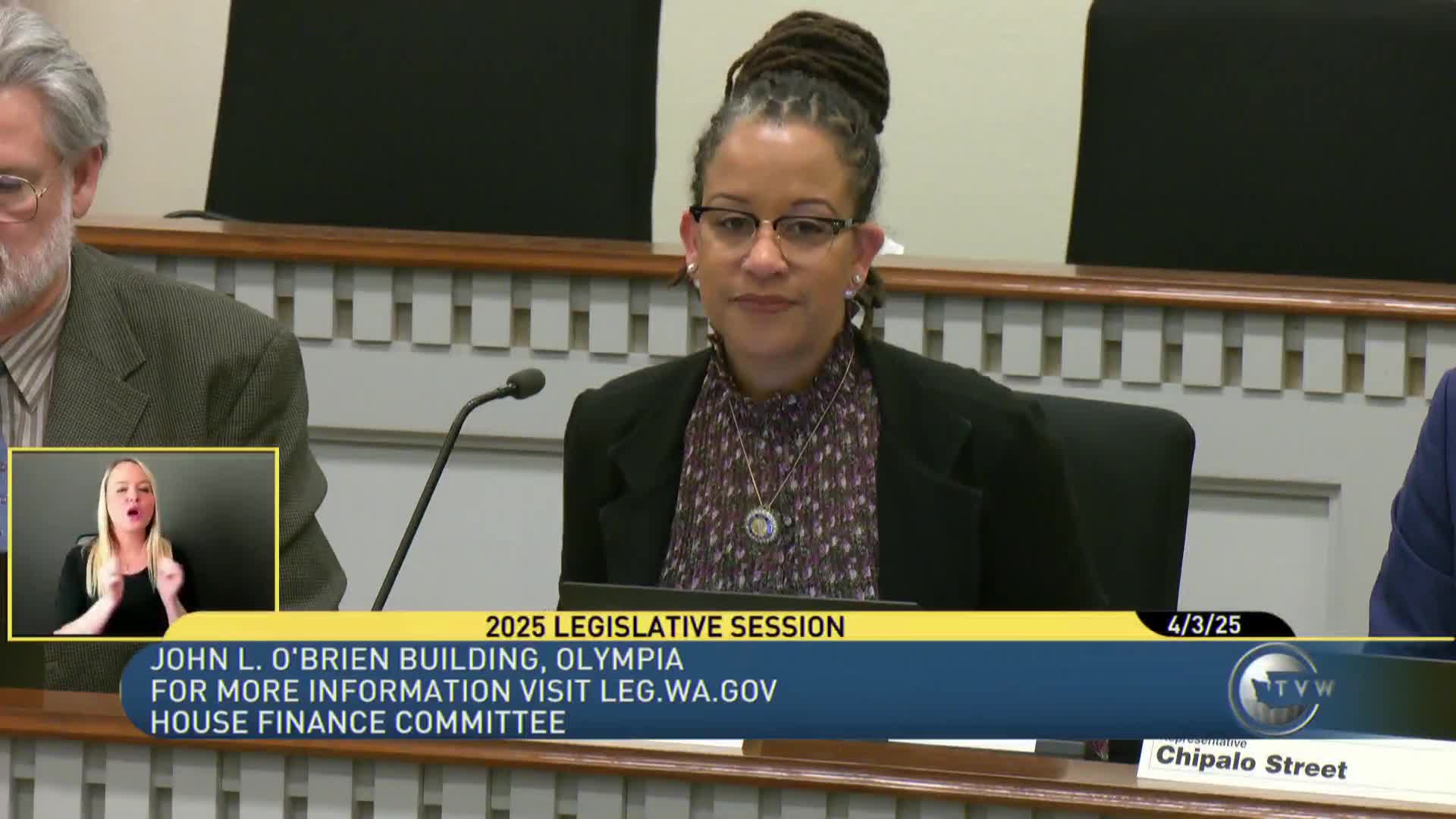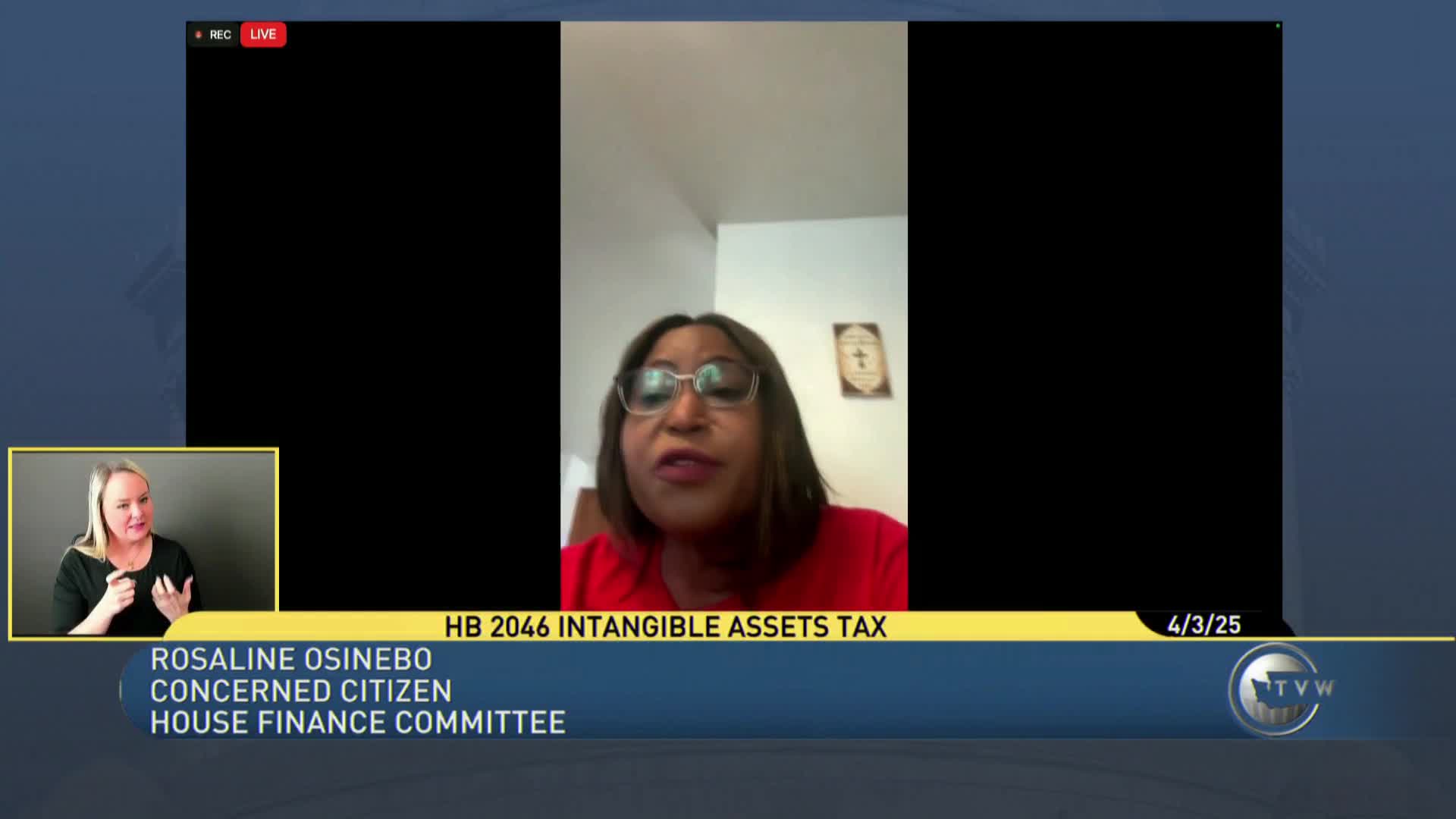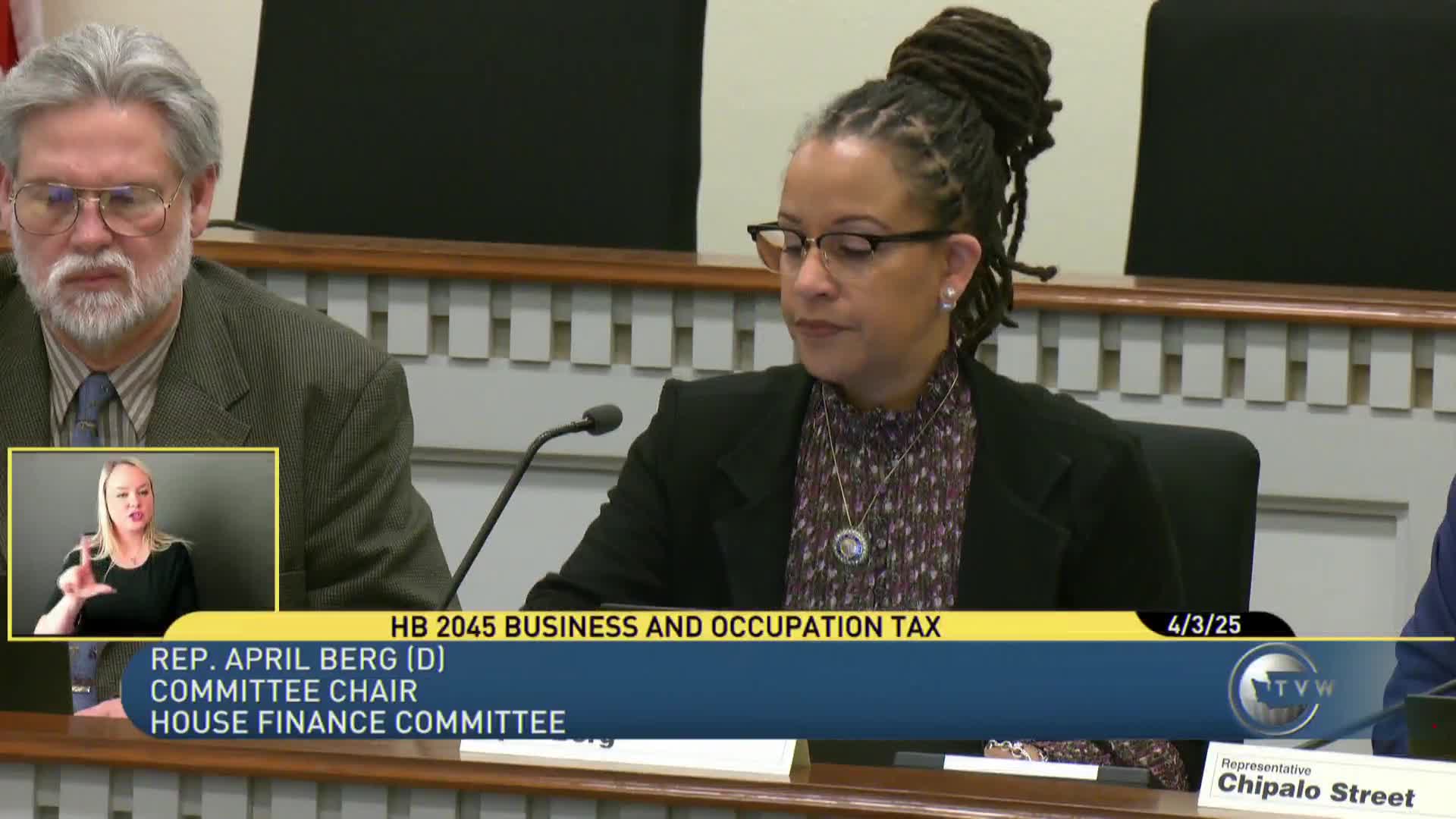Article not found
This article is no longer available. But don't worry—we've gathered other articles that discuss the same topic.

House Finance hears bill to add B&O surcharge on highest‑grossing businesses, raises financial institution surcharge

House Finance reviews bill to raise local revenue growth cap, expand levy authority and change special‑education funding rules

